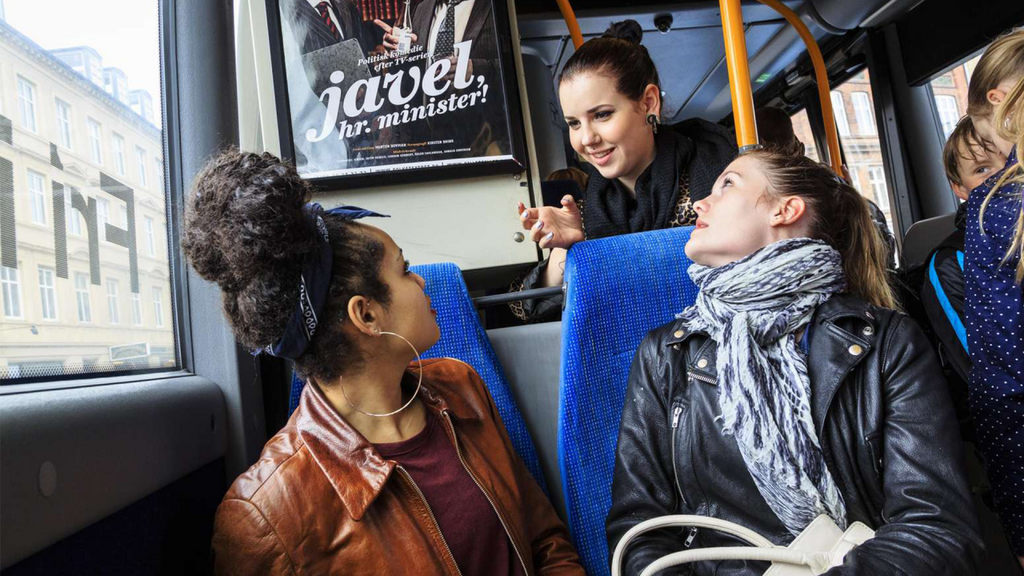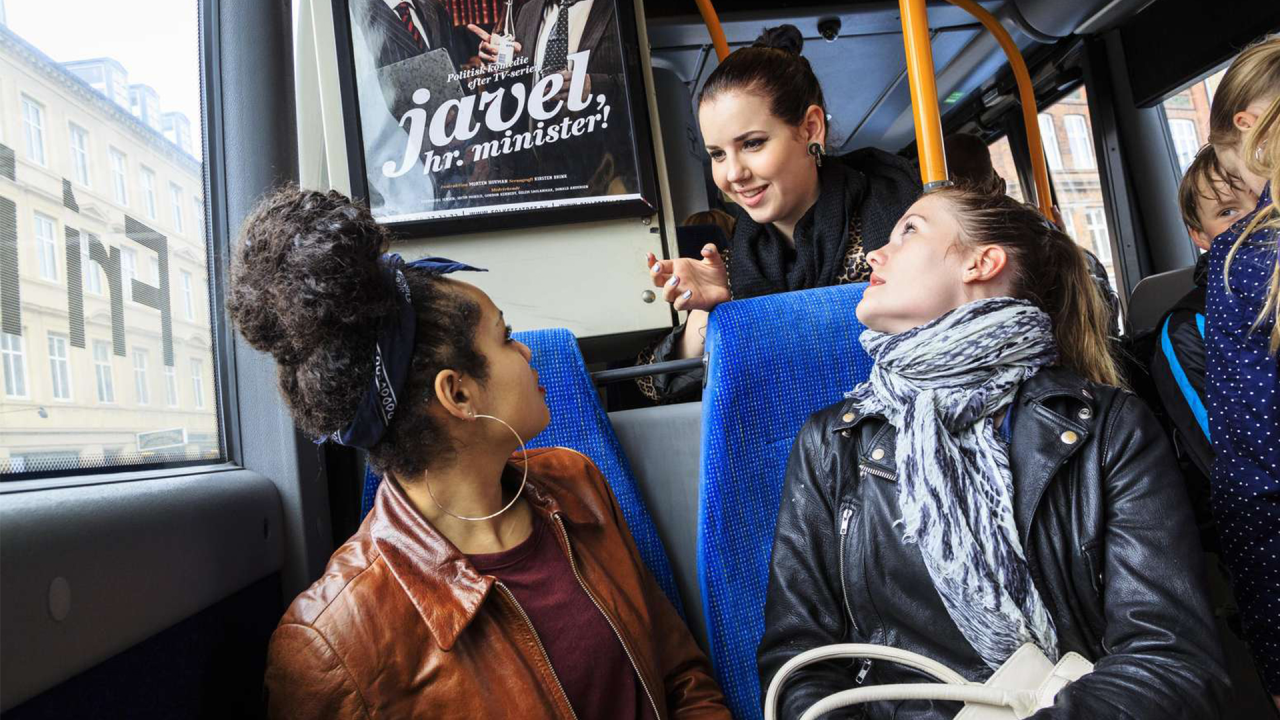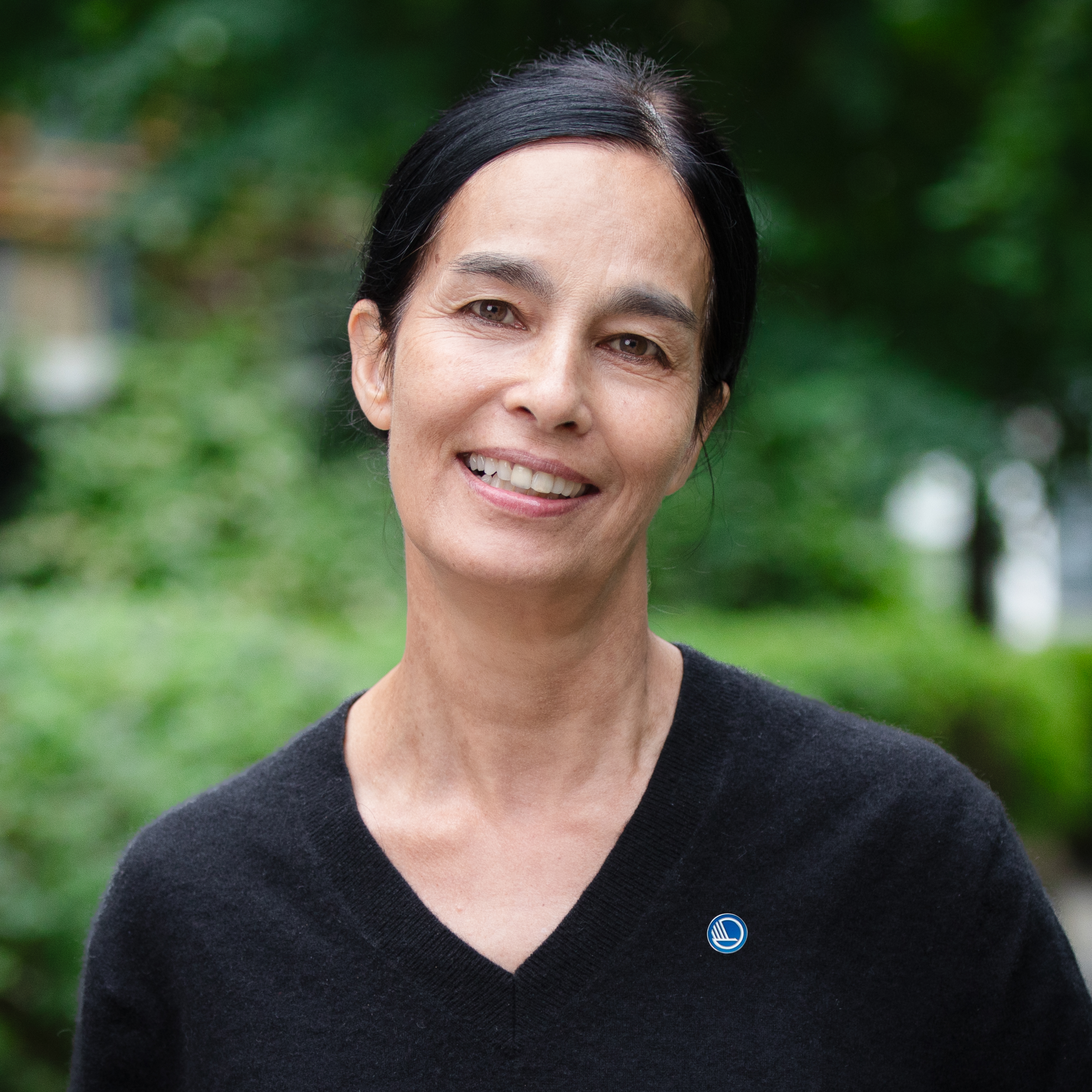
Q&A from webinars of the Nordic Energy Research Mobility Programme
The Q&A is formulated based on questions and answers raised during Webinar 1, Webinar 2, and Webinar 3 in 2024. For further inquiries, you are welcome to contact Senior Adviser Maj…
The Q&A is formulated based on questions and answers raised during Webinar 1, Webinar 2, and Webinar 3 in 2024. For further inquiries, you are welcome to contact Senior Adviser Maj Dang Trong or Higher Executive Officer Ditte Stiler.
You can also access the presentations from Webinar 1 and Webinar 2 via the links below.

Call for Proposals 2024: The Nordic Energy Research Mobility Programme
General Q&A
Is co-financing necessary?
No, co-financing is not necessary.
Can a single partner/ company fund the research?
As the mobility programme aims to fund mobility activities, there should be scientific activities, which the project application builds upon.
We do not have any requirements whether this is from scientific activities, such as one project, multiple projects, single courses, or multiple courses, which can form the basis for a mobility project application.
In other words, there are no requirements on the number of financiers among the partners.
Who can sign the letter of commitment? Can the Head of Centre sign it?
The letter of commitment should be signed by a person who holds the authority to represent the project owner (HEI) or the partner the concerned person represents. Heads of Centres usually have this authority, but it depends on the institution’s own organisation.
Regarding deliverables, could you please elaborate on what is considered as a deliverable within the terms of a mobility project?
Deliverables can be reports and brochures etc., which present and summarise the results of the exchanges and events. We encourage you also to share scientific publications compiled together among the Nordic partners.
When including an industrial partner as observer, could you please describe more what should be included in their letter of commitment?
In their letter of commitment, they must declare that they will contribute scientifically and professionally to the project.
Do you distinguish between Early Stage Researchers (ESRs) if they are master students, PhD students or postdocs?
Yes. The target group for this mobility programme is PhD students, post-doctorates, and researchers.
Do researchers include senior researchers?
Yes, as well as associate professors, professors, and other types of researchers.
Must all the partners be affiliated with research projects for this call?
It is not required that the partners are affiliated with other research projects, but this project must be research-based and target one of the key areas of energy research as outlined under the section ‘Aim of the call’.
How many partners and observers would you say is good for such project?
The consortium must include at least two Nordic HEI partners from two different Nordic countries, and all partners applying for funding must be legally based in a Nordic country or their autonomous areas.
The programme does not impose a limit on the number of partners or observers involved in the project, nor does it specify whether the quantity of partners and observers affect the quality of the project.
Who will evaluate the proposals?
The proposals will be assessed by external experts. In this evaluation process, Nordic Energy Research’s Guidelines on Impartiality will be applied to ensure no conflicts of interest arise.
Will the outcome (of the evaluation) be shared with others for the reason of unsuccessful bid?
By the end of the process, all applicants will receive their sum score.
I believe the successful project will get 100% funding (100% project budget that is applied for which is not more than 4.33 MNOK). Can you clarify?
The aim is to finance three mobility projects under this year’s call for proposals with a maximum of MNOK 4.33 per project for the entire project period. We usually fund up to the maximum limit, but there might be cases where the budget needs to be rebalanced, e.g., depending on industry participation.
Budget related Q&A
We received several questions regarding the budget and therefore, we want to provide clarifying information regarding the budget.
This programme differs from other research programmes since the funding can only be used for mobility, networking, and knowledge-sharing activities. Consequently, we only ask you to disseminate the applied funding for mobility activities, not for performing the research itself. That should be covered by in-kind resources.
It is a prerequisite that the PhD student, post-doctorate, or researcher receiving funding from the category mobility costs has existing funding for salaries or scholarships from the participating partners.
When you apply for funding, you are asked to divide your budget into three categories:
- Planning and administration costs
- Mobility costs
- Communication and dissemination
Planning and administration must not exceed 20% of the total funds applied for from Nordic Energy Research. For the two other categories, there is no predefined limit, but you must justify your use of resources.
Planning and administration costs (maximum 20%)
Planning and administration costs must only cover expenses of planning, regardless of whether the work is performed by a scientific or administrative staff member or an external consultant.
- Salaries: Funding used for covering resources used by project participants for setting up, planning, and managing a networking/mobility/event activity.
- Travel and accommodation: Funding used for covering direct costs related to travel, accommodation, and subsistence allowance for setting up, planning, and managing a networking/mobility/event activity.
- Other: Activities not comprised by above-mentioned categories.
Mobility costs:
For this category, you must specify your applied use of funding for short-term and long-term mobility and event activities.
- Short-term and long-term exchange: Funding for mobility costs must only cover the additional expenses of a PhD student, post-doctorate, or researcher for performing an exchange. This includes accommodation, travel and commuting, and additional costs for staying abroad.
- We recommend the following maximum rates (as a lumpsum covering the costs mentioned above) for PhD students, post-doctorates, and researchers staying abroad:
- Single: NOK 23 000 per month
- Family: NOK 39 000 per month
- We recommend the following maximum rates (as a lumpsum covering the costs mentioned above) for PhD students, post-doctorates, and researchers staying abroad:
- Indirect costs: Indirect costs under mobility costs include rents of office space and equipment, e.g., conference halls, meeting rooms, laboratories, IT equipment etc.
- Events: Funding covers allowances of speakers, refreshments, food, workshop material, and other costs related to hosting an event etc. Funding also covers direct costs related to travel, accommodation, and subsistence allowance for project participants participating in events.
- Other: Other costs related to mobility.
Communication and dissemination:
This part of the budget should outline the intended use of the funding for communication and dissemination activities, including a budget for attending the joint workshop, salaries, travel and accommodation for external dissemination, and other relevant expenses.
- Participation in joint workshop: Project participants are obliged to attend the joint workshop for PhD students, post-doctorates, and researchers. Only travel and accommodation for participating in the joint workshop should be included for this item.
- Salaries: Salaries for communication and dissemination activities should be restricted to cover added workload for communication and dissemination of the project by administrative or scientific staff. The evaluators will consider if there is a reasonable share of costs allocated to this.
- Travel and accommodation for external dissemination: Can be used for attending external events.
- Other: Other costs related to communication and dissemination.
Specific questions regarding the budget
Regarding budget and eligible costs, it is mentioned that salaries are covered for planning and management of the project. However, in the budget file the indirect costs are listed under the mobility activity. How to interpret this? Indirect costs are usually generated from salaries, but salaries are located under the mobility post in the budget file. How do we consider these indirect costs during the mobility?
Indirect costs under the category, mobility costs, do not include salaries. Indirect costs under mobility costs include rents of office space and equipment, e.g., conference halls, meeting rooms, laboratories, IT equipment etc.
Other costs related to salary should be included in the salary items for planning and administration and/or communication and dissemination.
Is participation in external conferences etc. as visitors covered by the project?
Yes, you are allowed to apply for funding for attending external events.
For the planning and administrative post, is it only the coordinator (project manager) that can assign budget to this post?
No, all project partners can apply to costs to cover planning and administration. Nordic Energy Research will only sign a contract with the project manager, who will receive the full funding amount on an annual basis. Subsequently, the project manager will disperse the funding among the partners.
Are industrial partners entitled for receiving funding? If so, what kind of cost are they entitled to include? Is it just travel expenses or also man hours (partial salaries)?
Yes. They are entitled to use their funding for covering same activities as the research partners. Cf. “Budget related Q&A”.
In case of any partner from any company – do they have to include their own cost, or their participation can be covered in some form?
All industrial partners (including private companies) are limited to receiving a maximum of 200 000 EURO for a 3-year fiscal period, following the EU/EFTA regulation of de minimis state aid.
In the submission portal, we need to submit the budget plan for every year, is it possible to allocate the budget evenly between years?
Yes, it is if you can justify it.
Does the mobility cost support salary during the time of mobility?
No, funding for mobility costs must only cover the additional expenses of a PhD student, post-doctorate, or researcher for performing an exchange. This includes accommodation, travel and commuting, and additional costs for staying abroad.
Is there an obligation for any self-funding?
No, there is no obligation for self-funding. However, it is a prerequisite that the PhD student, post-doctorate, or researcher receiving mobility funding has existing funding in salaries or scholarships. Thus, you could say that self-funding is expected in terms of ordinary salaries and covering costs related to conducting research unrelated to mobility activities, e.g., procuring technical equipment for laboratory experiments.
If necessary, renting a laboratory or other direct cost related to the mobility can be considered eligible as it comprises renting a location for performing the mobility activity.
Evaluation criteria
What are the evaluation criteria?
You find the evaluation criteria in the application portal. These comprise 1) Quality of curriculum and relevance and 2) Implementation.
How much will the CV of project leader count?
It will be used as a part of the basis for assessing the project’s feasibility. It recommends seeing the call text for further information.
How to understand a long stay (e.g., >6 months), and what is the limit?
Researchers are only allowed for exchanges up to 3 months with funding from this call. There is not settled a limit for long term stays for PhDs, but a long stay is usually defined as 3–12 months. However, since the project period can be four years, there might be the need for stays (at least split in intervals) that exceed 12 months for a PhD in total.
Read more about the Nordic Mobility, Exchange, and Networking call
The Annual Gathering
When does the joint workshop usually happen? Is it an annual workshop?
In 2024, the joint workshop will occur from 2-3 October. One joint workshop will be held annually and expectedly in the first week of October.
Regarding the joint workshop, is it a requirement to join it every year? For all project partners or only project owners?
Yes, it is a requirement for project partners, not just the project owners, to participate in the annual workshop. We encourage all project partners to attend the workshop if possible, and to set aside budget for this in the application.
Where is the location for annual workshop? Is it physical one or online?
We plan to hold the first physical workshop in Bergen. We do not anticipate allowing online participation.
Individual Exchange Support
Can you submit an application as a group of, for example, 2–3 researchers from the same institution, or is it only allowed individually?
All applicants must apply individually. However, applicants are welcome to submit a similar application as colleagues, where they describe the link between the two or three applications.
Does the funding include the salary of the researcher at the host university or only the other expenses (such as rent and travel etc.)?
The funding does not include salary of the researcher at the host university.
It should be regarded as an additional support to the person undertaking the exchange to cover expenses such as rent, travel, and additional costs for living abroad.
Is it possible for PhDs and researchers to be hosted in the same Nordic country but at different universities?
No, the application is only eligible for funding if the exchange is performed at a host institution located in another Nordic country.
The research-oriented organisation, for instance, RISE in Sweden, is it qualified as the host for exchange?
Yes, RISE in Sweden is a qualified host institution for an exchange.
Read more about the Individual Exchange Support call
Networking and Event Support
If you are planning an event, such as a workshop or conference, would you need confirmation of the invited speakers?
No, applicants do not need to send confirmation of participation from invited speakers when they apply for support.
Who should sign the ‘Letter of Intent’?
The Letter of Intent must include signatures from both the Event manager and the Event owner.
Read more about the Networking and Event Support call
Participation from other countries than the Nordics
Will there be any development of new (extended) Baltic consortia and call for a Latvian-Nordic Energy research programme?
Nordic Energy Research is working for potentially extending the next call under the Joint Baltic-Nordic Energy Research Programme to have participation from Latvia and Estonia. Please stay tuned through our Newsletter and social media accounts.
Can a PhD student from a country outside the Nordic region participate the Nordic Energy Research Mobility Programme 2024?
Funding for participation in the programme is only possible for PhD students or researchers who are employed at, have a stipend, or are affiliated with a research performing organisation or higher education institution located in a Nordic country.
However, it is open for PhD students from outside the Nordic region to attend activities, with expenses covered through in-kind support.
Will research visits to institutions located outside the Nordic countries be eligible for funding within the framework of this call, provided these visits will strengthen the research collaboration and the consortium.
Funding from this programme cannot be used to finance visits to countries outside the Nordic countries.
Does the programme allow the applicant to gather experts from non-Nordic countries and are travel expenses for these experts covered?
It is permissible to bring together relevant experts from outside the Nordic region, but funding from this programme may not cover the travel and accommodation costs for experts from countries outside the Nordic region.
Providing an honorarium/fee to speakers with funding from this programme is allowed – also to speakers outside the Nordic region. The size of the honorarium/fee must be justified.
Other
What is the difference between the calls a) Individual Exchange Support, b) Networking and Event Support and c) Call for proposal 2024: Nordic Mobility, Exchange, and Networking? Which of these has a deadline?
The Individual Exchange Support and Networking and Event Support contribute financially to short-term mobility activities, e.g., a 6 months exchange for PhD student or a one week summer school. Importantly, these activities do not require affiliation with a funded research consortia project under Nordic Energy Research. There is no deadline for submission for these two calls. However, the call will close when the available budget is distributed following a first-come, first-served principle. At the turn of the year, the calls will be open again with a new budget for the new year.
The Call for Proposals 2024: Nordic Mobility, Exchange, and Networking supports long-term consortia partnerships and Nordic mobility and networking activities (up to four years). Submission deadline for this call is 30 May, 13:00 (CEST).
See examples of ongoing research consortia projects from a previous programme, the Nordic or Nordic-Baltic PhD Researcher Mobility Programme.
What is the definition of a researcher? Does it also apply to postdoctoral researchers as well as faculty members (Assistant, Associate and Full professors)?
The definition of a researcher includes postdocs, as well as Assistant Professors, Associate Professors and Full Professors.
Are researchers affiliated with non-profit research institutes eligible for funding?
Yes, a researcher from a non-profit research institute is an eligible partner or applicant to the calls.
In Danish universities, it is the university that covers the accommodation and transportation for PhD exchange. These above expenses are not covered by this funding, right?
Yes, these expenses can be covered by funding from the calls under this programme.
What is the difference between the Project owner and the Project manager?
The Project manager (the Coordinator) is the individual responsible for the professional progress, implementation, and completion of the project on behalf of the Project owner, as per Nordic Energy Research’s standard terms and conditions.
The Project owner is the institution responsible for ensuring that the project is completed in accordance with the contract, as per Nordic Energy Research’s standard terms and conditions.

